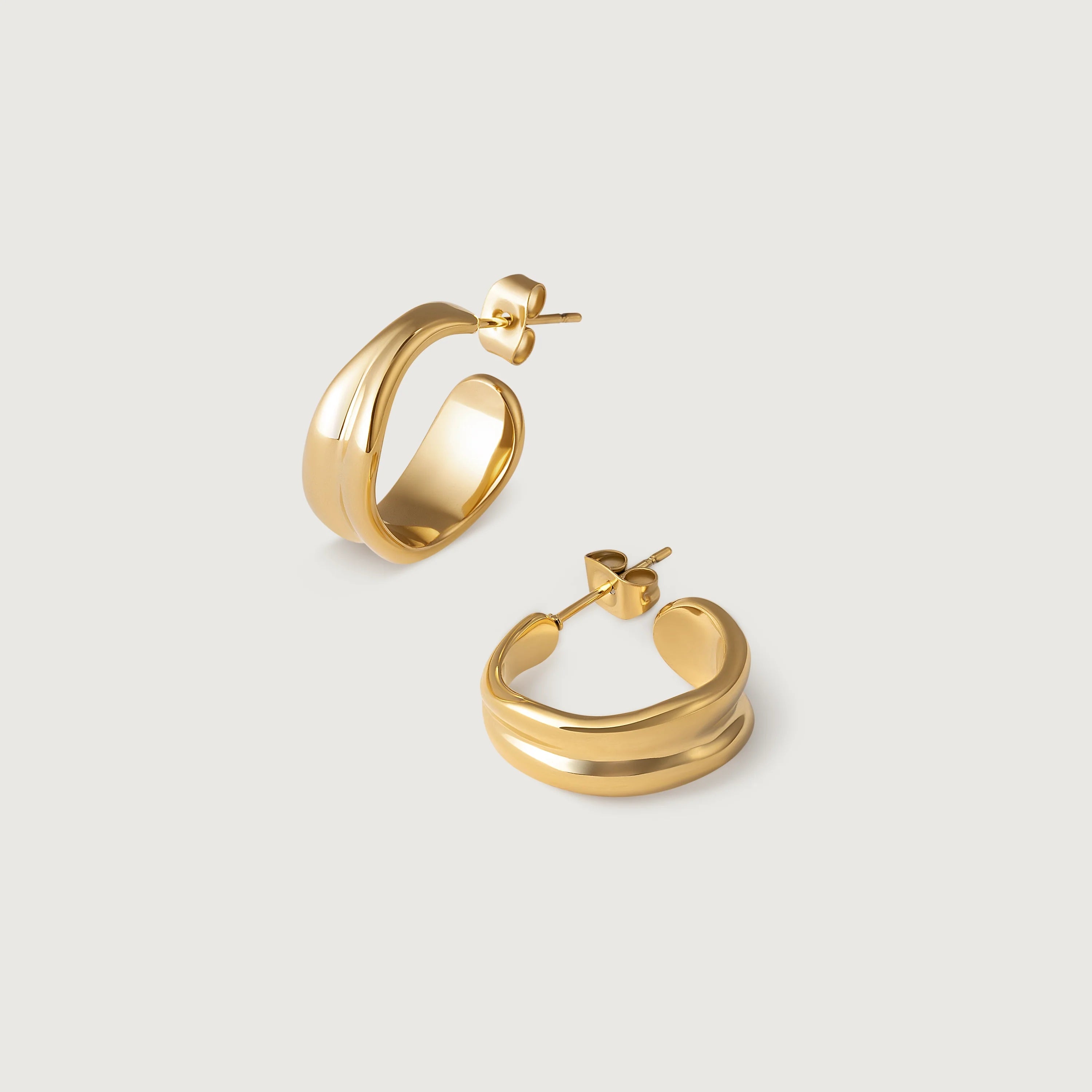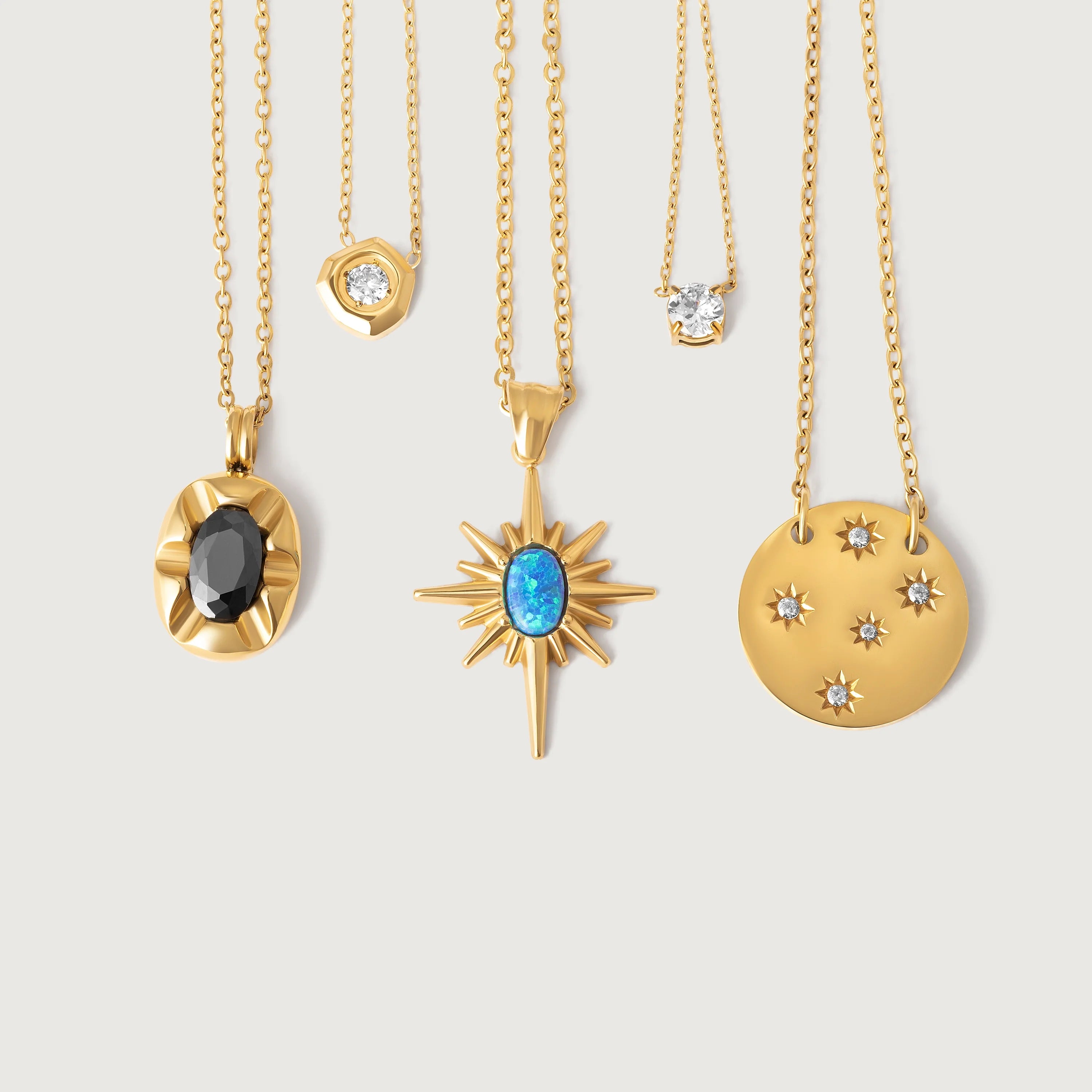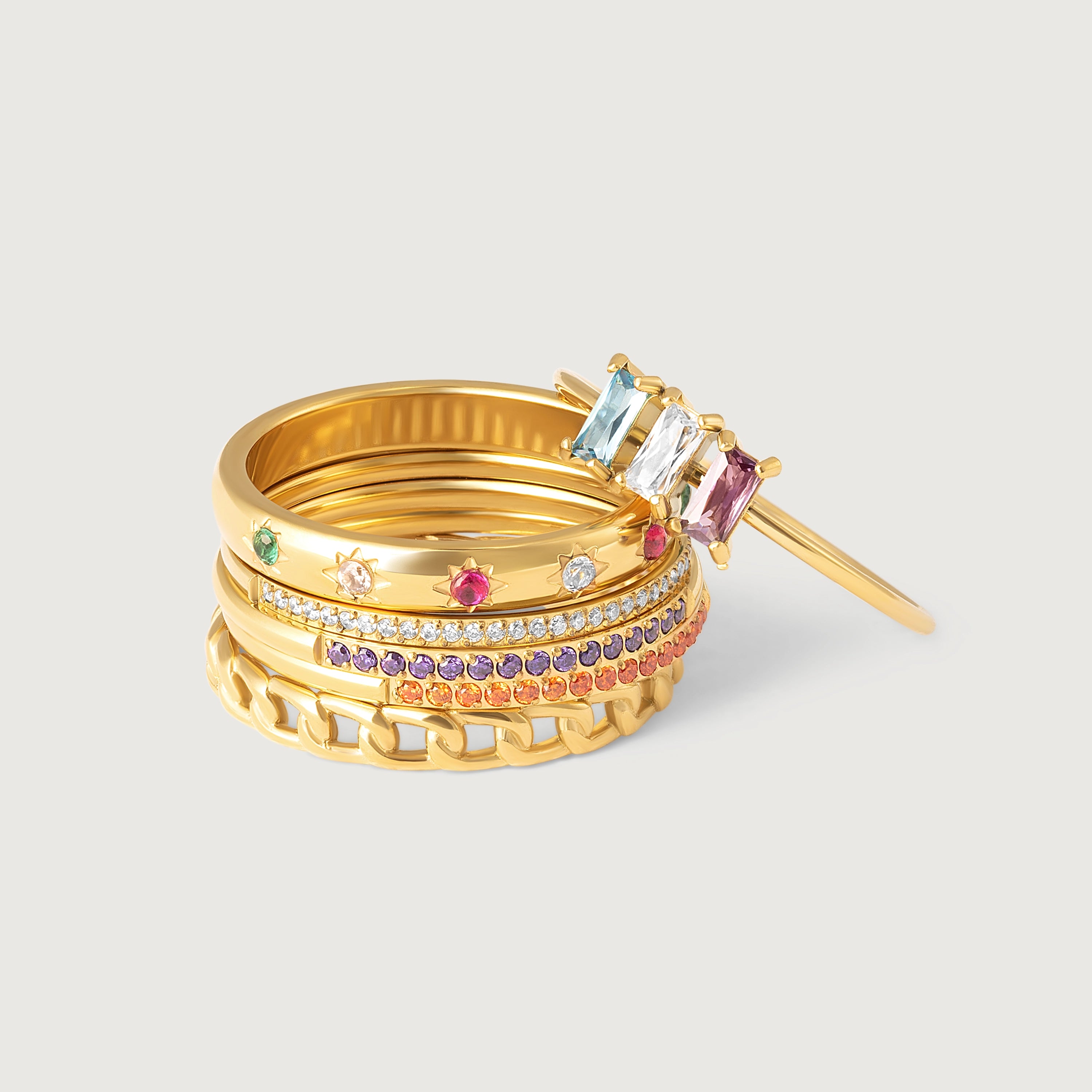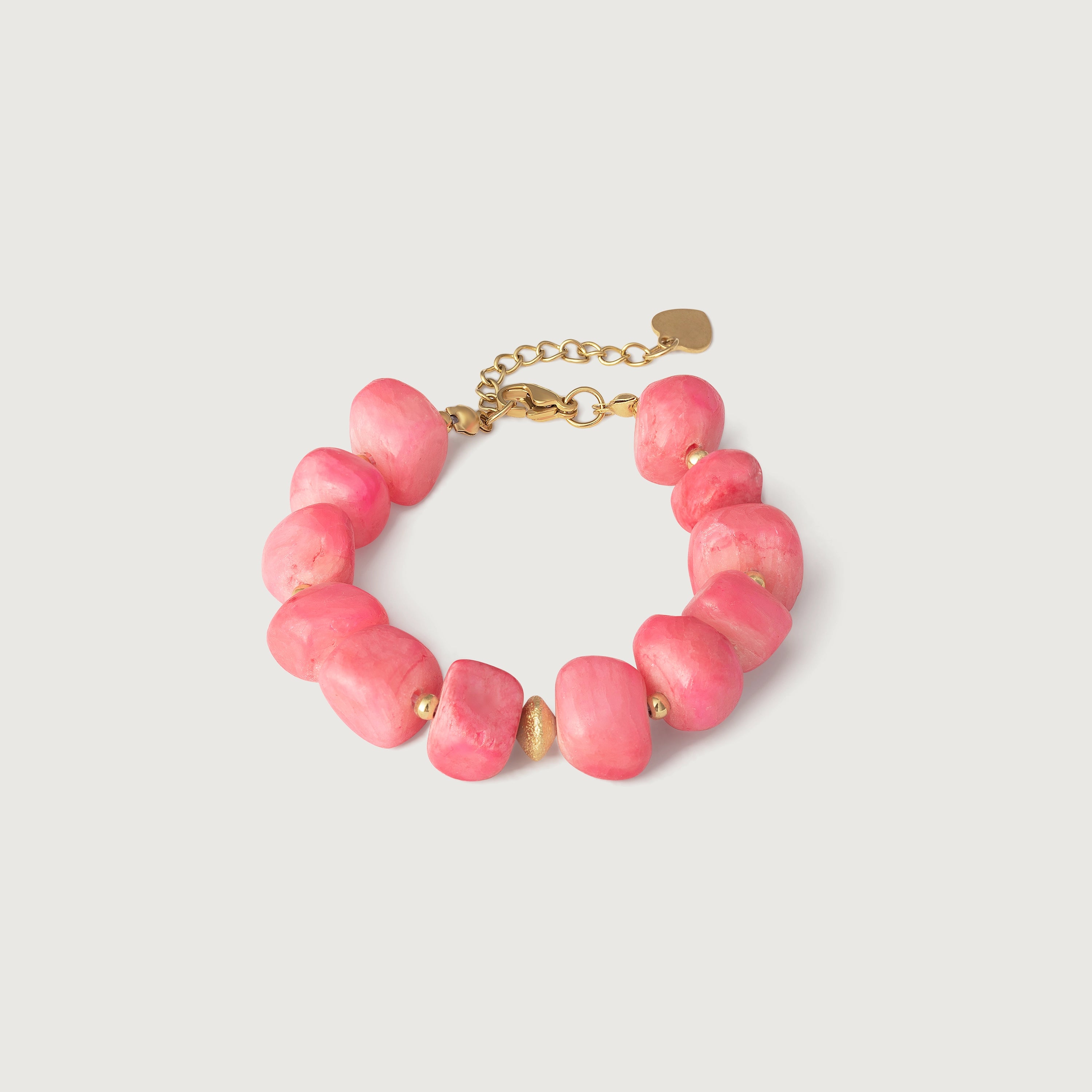The truth is, the lifespan of gold plating varies significantly. While some pieces might start showing wear after a few months, others can maintain their golden glow for up to two years, sometimes even longer, especially with meticulous care. It's not a simple answer, because several crucial factors come into play.
This comprehensive guide explores exactly what determines gold plating durability, how it compares to other gold jewellery types, and most importantly, provides actionable tips to help you maximise the lifespan of your treasured plated pieces.
The Short Answer: Typical Lifespan of Gold Plating
Generally, well-cared-for gold plating on jewellery can last anywhere from several months to around two years.
Remember, this is just a general guideline. The actual longevity heavily depends on the specific factors we'll explore next. Think of it less as a fixed expiry date and more as a potential influenced by quality and care.
Flash Plating
Weeks to months
Standard Plating
6 months to 1 year
Heavy Gold Plating
1-2+ years
Gold Vermeil
2+ years with care
Key Factors Influencing How Long Gold Plating Lasts
Why does one gold-plated necklace fade faster than another? It comes down to these key elements that determine durability:
Plating Thickness (Microns Matter)
This is arguably the most significant factor. Gold plating thickness is measured in microns (µm), and the difference is substantial:
- Flash Plating (<0.175 microns): Extremely thin, often used for very cheap costume jewellery. Offers minimal durability and may wear off very quickly.
- Standard Gold Plating (0.5 - 1.0 microns): Common for fashion jewellery. Offers moderate durability with proper care.
- Heavy Gold Plating / Gold Vermeil (Minimum 2.5 microns over Sterling Silver): Significantly thicker and more durable. This is a legally defined standard, offering much better longevity. The rule is simple: Thicker plating equals longer life.
Pro Tip: Always inquire about plating thickness when purchasing. Reputable brands will be transparent about their construction methods and measurements.
Quality of the Base Metal
The metal underneath the gold layer significantly impacts overall performance. Common base metals include brass, copper, stainless steel, or sterling silver (specifically for Vermeil). Stainless steel is often an excellent choice as it's durable and less likely to react with skin or tarnish if the plating eventually wears thin.
Frequency of Wear
It stands to reason: the more you wear it, the faster it wears out. Consider these factors:
- Daily Wear: Items worn every day, especially rings and bracelets that experience constant friction, will show wear much faster than pieces saved for occasional outings.
- Contact Levels: Pendants and stud earrings generally experience less friction than stacking rings or bracelets rubbing against skin, clothing, and surfaces.
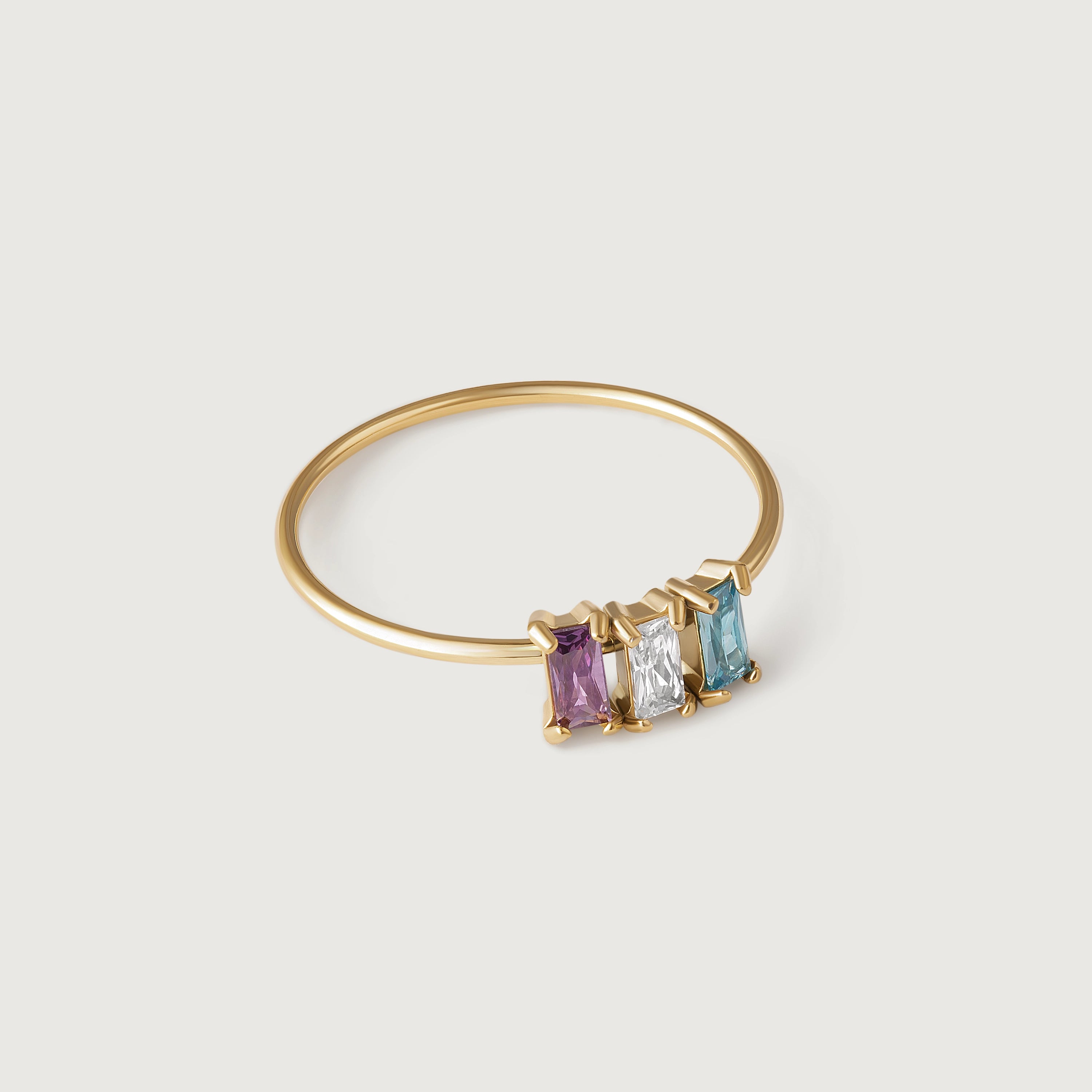
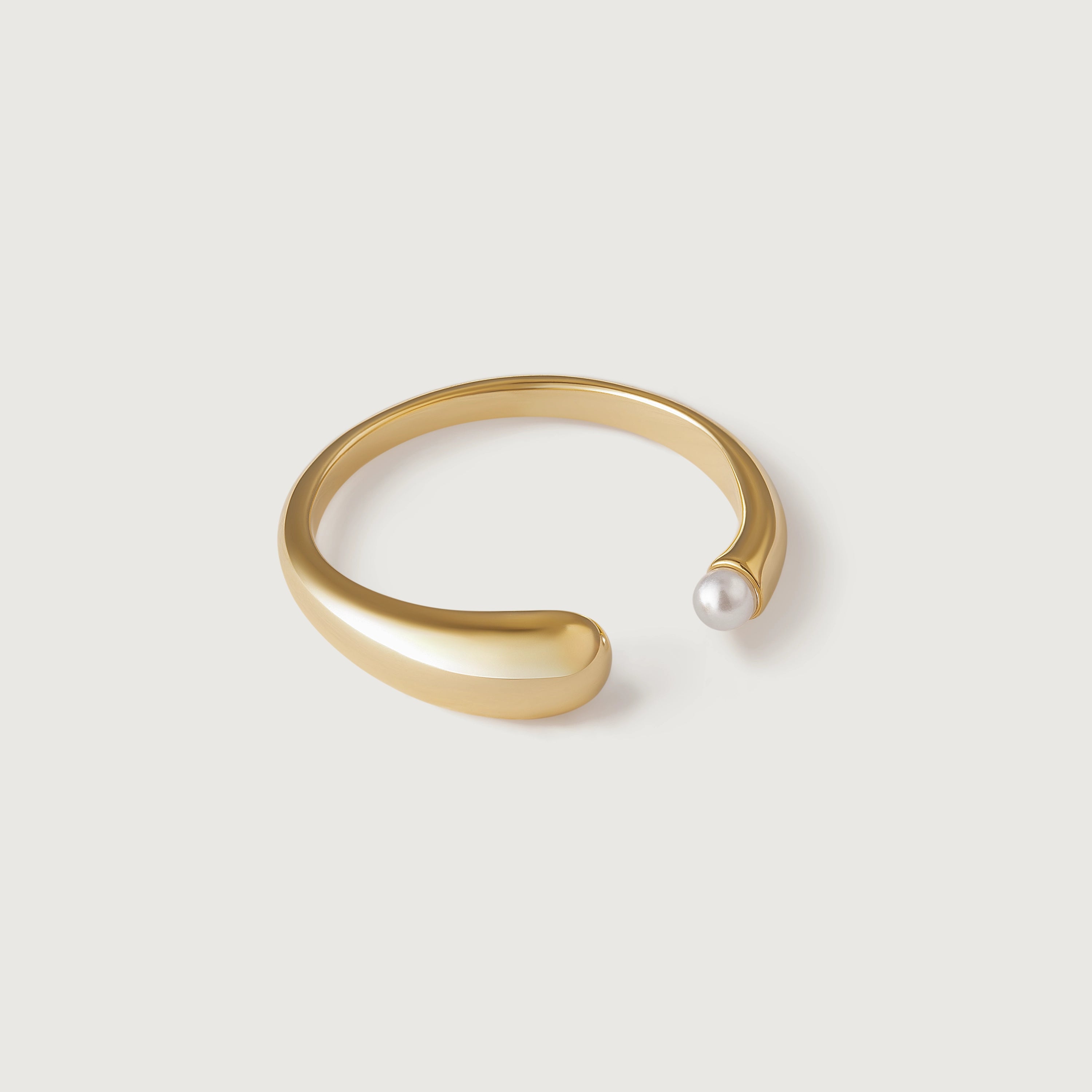
Lifestyle & Environment
Your daily habits and environment play a huge role in determining how long your plating will last:
- Chemical Exposure: Perfumes, lotions, hairsprays, hand sanitisers, household cleaners, and especially chlorine (in swimming pools and hot tubs) can corrode or strip away the thin gold layer. Sweat can also be slightly acidic and contribute to wear over time.
- Abrasion: Constantly rubbing against desks, fabrics, or other jewellery can physically wear down the plating. Activities involving manual labour or exposure to rough surfaces accelerate wear significantly.
Care & Maintenance Routine
How you clean and store your jewellery directly impacts its lifespan. Neglect will shorten its life dramatically, while mindful care can significantly extend it. Proper maintenance is often the difference between months and years of wear.
How to Make Your Gold Plated Jewellery Last Longer (Care Tips)
The good news is you have considerable control over extending the life of your gold-plated treasures. Follow these essential care guidelines:
Avoid Moisture & Chemicals
This is absolutely crucial for preserving your plating:
- Remove jewellery before showering, swimming (pools or sea), exercising, or washing hands. Water itself isn't the enemy, but minerals, chlorine, salt, and soaps are destructive to plating.
- Apply lotions, perfumes, makeup, and hairspray before putting on your jewellery. Let them dry completely first to avoid chemical contact.
Clean Gently
Proper cleaning extends lifespan significantly:
- After each wear, wipe pieces gently with a soft, lint-free cloth (like a microfibre or glasses cloth) to remove oils and sweat.
- Avoid harsh chemicals, jewellery dips, or abrasive cleaners/polishing cloths designed for solid metals. These will strip the plating instantly.
- For deeper cleaning, use a tiny amount of mild soap diluted in warm water, gently cleanse, rinse thoroughly with clean water, and – this is vital – dry completely with a soft cloth immediately.
Store Properly
Smart storage prevents damage and extends life:
- Keep plated pieces separate to prevent scratching against other jewellery. Store them in individual soft pouches, small ziplock bags (with air removed), or a lined jewellery box.
- Store in a cool, dry place. Humidity (like in a bathroom) can accelerate tarnishing of the base metal if the plating is compromised.
Wear Mindfully
Conscious wearing habits make a significant difference:
- Put your jewellery on last when getting ready and take it off first before undressing or washing up.
- Remove rings and bracelets before tasks involving heavy friction or potential chemical exposure (cleaning, gardening, cooking).
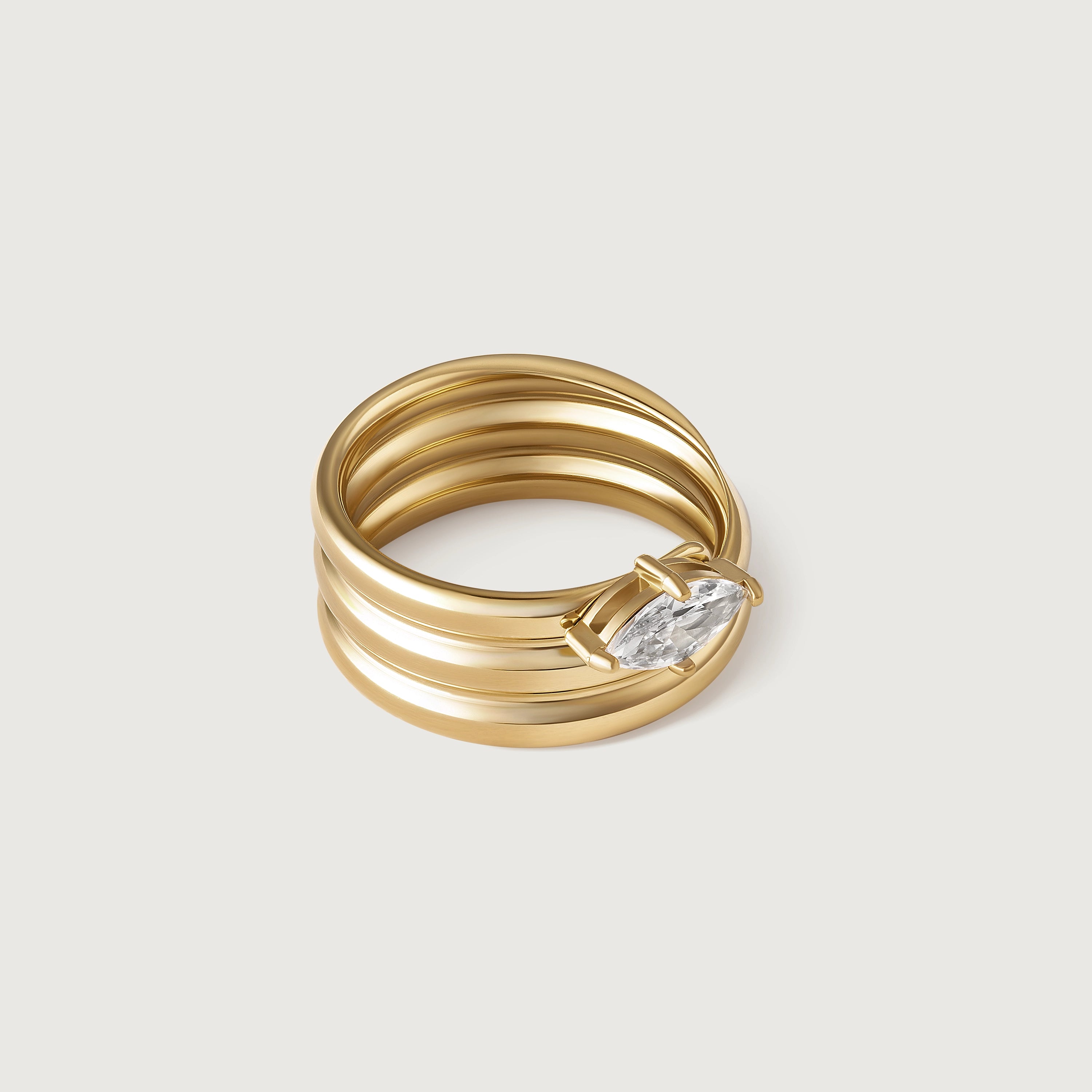
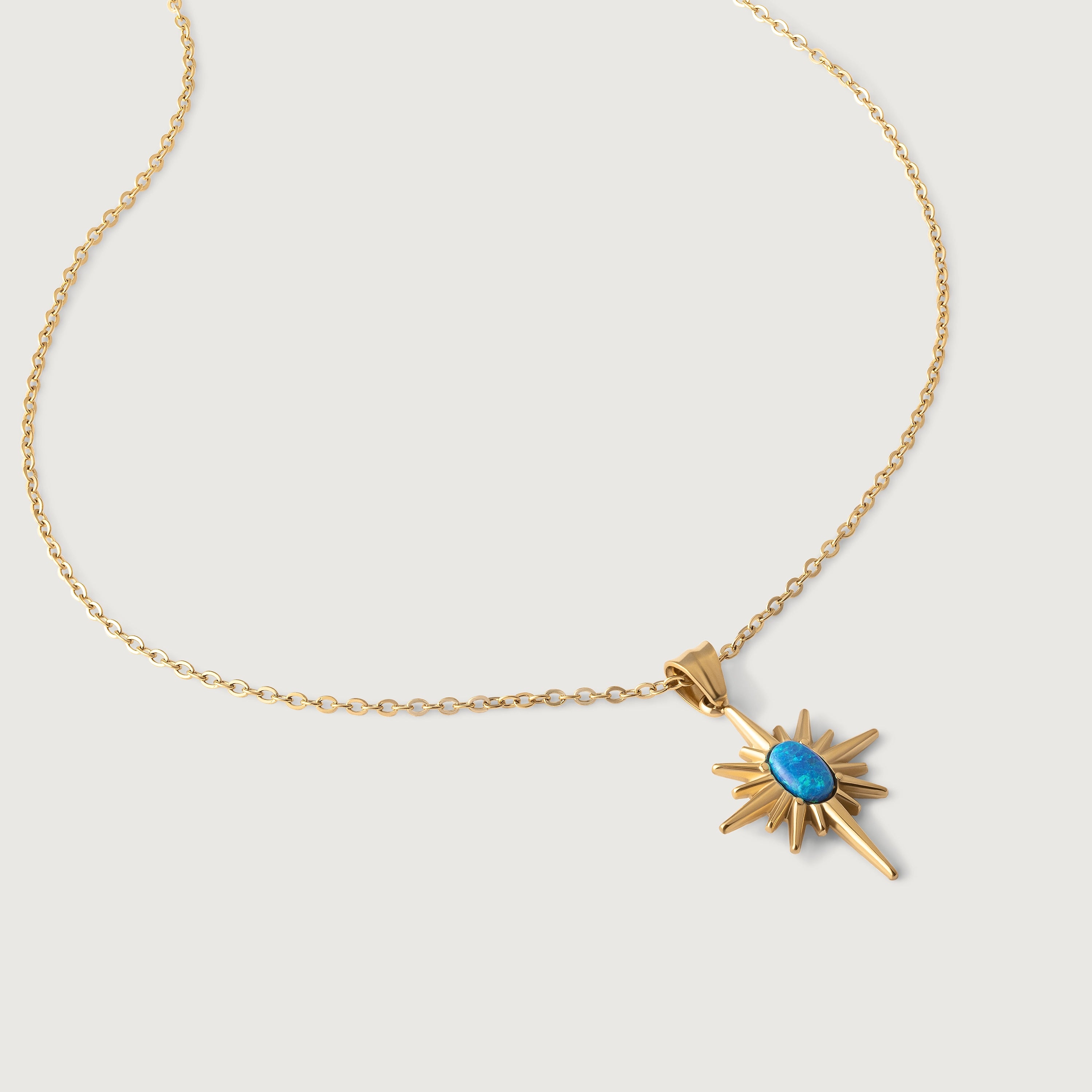
Gold Plating vs. Other Gold Jewellery Types
Understanding the differences helps set realistic expectations and guides your jewelry choices:
- Gold Plated: A thin layer of gold electrochemically applied over a base metal (brass, copper, steel etc.). Most affordable, least durable option.
- Gold Vermeil: A thicker layer of gold (minimum 2.5 microns, often 10k gold or higher) electroplated specifically over Sterling Silver. More durable and valuable than standard plating due to thickness and silver base.
- Gold Filled: A substantial layer of gold (usually 5% or 1/20th of the total weight) heat- and pressure-bonded to a core of base metal. Significantly more durable than plating or vermeil, contains much more gold.
- Solid Gold: An alloy of pure gold mixed with other metals throughout the entire piece (e.g., 9k, 14k, 18k). The most durable, valuable, and longest-lasting option.
Each type serves different needs and budgets. Gold plating excels at providing affordable access to gold aesthetics, while solid gold offers lifetime durability. Choose based on your priorities and intended use.
What Happens When Gold Plating Wears Off?
Recognizing the signs of wear helps you understand when plating is nearing the end of its lifespan:
- Fading: The bright gold colour diminishes or looks dull, losing its original lustre.
- Base Metal Exposure: The colour of the underlying metal (often silvery, coppery, or greyish) starts showing through, especially on edges and high-friction areas.
- Tarnishing/Discoloration: The exposed base metal might react with air or skin, causing tarnish (darkening) or sometimes leaving a green or black mark on the skin (a harmless reaction, usually from copper in the base alloy).
Replating Options
In some cases, particularly for cherished items, replating might be an option. Consult a professional jeweller to see if it's feasible and cost-effective for your specific piece. However, the cost often approaches that of a new piece.
When you're ready to explore different types of jewelry that align with various wearing frequencies, consider browsing our collections of hoop earrings, beaded necklaces, and layering necklaces designed for different style preferences and maintenance levels.
Is Gold Plated Jewellery Worth It?
Absolutely, depending on your expectations and needs! The key is understanding what you're getting and using pieces appropriately.
Pros
- Affordability: Offers the luxurious look of gold at a fraction of the price
- Trend-Friendly: Allows you to experiment with different styles without significant investment
- Variety: Wide range of designs available across all jewelry categories
- Accessibility: Makes gold aesthetics available to all budgets
- Low Commitment: Perfect for testing styles before investing in higher-end pieces
Cons
- Limited Lifespan: It will wear off eventually, requiring replacement
- Requires Careful Handling: Needs more mindful care than solid gold or gold-filled items
- Potential Reactions: Base metal exposure can sometimes cause skin discoloration for sensitive individuals
- No Investment Value: Unlike solid gold, holds no resale or intrinsic value
- Maintenance Intensive: Requires consistent care to maintain appearance
If you want an affordable way to enjoy current styles, understand the need for careful handling, and accept that it won't last forever, then gold plating is definitely worth considering. It's perfect for building a diverse jewelry wardrobe and experimenting with trends.
The key to satisfaction with gold plated jewelry lies in having realistic expectations and choosing pieces that align with your lifestyle and maintenance preferences.
Conclusion: Maximizing Your Gold Plating's Life
So, how long does gold plating last? While there's no single answer, a lifespan of up to two years is achievable for quality plating that receives excellent care. The key takeaways are that plating thickness and your maintenance routine are paramount.
By understanding the factors that affect durability and treating your gold-plated jewellery with a little extra care – keeping it dry, chemical-free, and stored safely – you can significantly extend its beauty and shine. Enjoy the affordable elegance it brings, knowing you have the power to make it last!
Explore Quality Gold Plated Collections
Discover Kaleya Studio's thoughtfully crafted gold plated pieces, made with superior base metals and quality plating processes designed to maximize both beauty and longevity.
